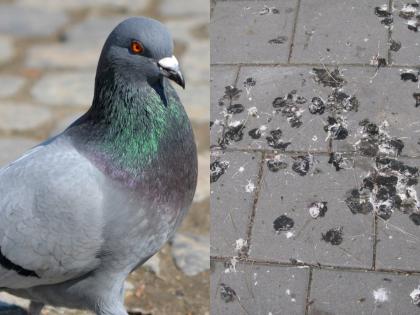Feeding Pigeons Can Be Harmful: Know the Diseases Spread by Their Droppings
By Lokmat English Desk | Updated: July 19, 2025 19:20 IST2025-07-19T19:19:04+5:302025-07-19T19:20:00+5:30
Feeding pigeons is a hobby of many. They think that they are feeding dumb creatures. This is a virtue. ...

Feeding Pigeons Can Be Harmful: Know the Diseases Spread by Their Droppings
Feeding pigeons is a hobby of many. They think that they are feeding dumb creatures. This is a virtue. In cities, many people spend their pocket money to feed pigeons. But many do not know how dangerous it can be to do so or go near them. Citing health risks associated with pigeon droppings, Maharashtra government has directed the Brihanmumbai Municipal Corporation to immediately close "kabootar khanas," or pigeon feeding locations, in Mumbai. Let's understand Why it is risky and what diseases caused by pigeon droppings.
While talking to NBT Dr. Dipesh G Agarwal said, pigeon feeding zones or pigeon houses have become common in cities like Mumbai. Many people go here and feed pigeons. When food becomes easily available, the number of pigeons increases. Urban ecologists call them 'flying rats' because, like rats, their job is to reproduce more, spread diseases and damage public places. Pigeons carry many health risk of various diseases increases due to exposure to pigeon droppings. They often keep them dirty on the balconies of the house. It contains high levels of uric acid and ammonia. This causes the growth of harmful bacteria and fungi.
- Histoplasmosis - If dried pigeon droppings enter the body through inhalation, it can cause infection in the lungs.
- Cryptococcosis - This is a fungal infection. Which can affect the lungs and brain.
- Hypersensitivity pneumonitis - If particles of feathers and droppings enter the body through inhalation, it can cause an allergic lung disease. Prolonged exposure can cause permanent damage to the lungs.
- In urban hospitals, chronic cough, shortness of breath, and pulmonary edema, such as respiratory problems, are on the rise. These symptoms are often caused by prolonged exposure to pigeons.